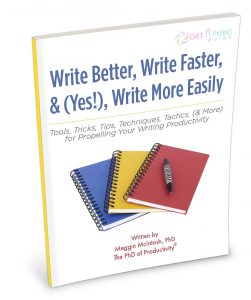Better Business Writing by Susan Hill
 For many people, sitting down in front of a blank sheet of paper or computer screen can induce anxiety excruciating enough to produce clammy hands and creative excuses to do something – anything – else! Yet you’re in business, and you know how important clear and concise communication is in whatever mode you’re writing: emails, memos, letters, handouts, signage and now, social media such as LinkedIn and Facebook. Take some time to do more than write: prepare, lead, read, review and revise, and you’ll find your anxiety level and successful communication will rise dramatically.
For many people, sitting down in front of a blank sheet of paper or computer screen can induce anxiety excruciating enough to produce clammy hands and creative excuses to do something – anything – else! Yet you’re in business, and you know how important clear and concise communication is in whatever mode you’re writing: emails, memos, letters, handouts, signage and now, social media such as LinkedIn and Facebook. Take some time to do more than write: prepare, lead, read, review and revise, and you’ll find your anxiety level and successful communication will rise dramatically.
- Prepare: Take a few minutes to think about who will be reading whatever you’re writing. Who exactly is your priority reader? If business owners are your intended audience, you’ll want to be more structured and results-focused that if you’re speaking to potential consumers in their twenties. In the latter case, you can be more informal and lifestyle-oriented.
- Lead: In the 1970s, the average reader’s attention span was three minutes; it’s now measured in seconds. Spend more time on your opening sentence than any other. This is your first and best opportunity to command attention, so choose words that are intriguing. Paint a picture in the reader’s mind, or consider opening with a question. An electrician promoting solar energy installations might ask, “Would you like to see you electricity meter run backward?”
- Read: After you’ve written your first few sentences or paragraphs, stop and read. Do this every few paragraphs. Ask yourself: Have I kept my audience in mind? Would this grab and keep my attention? Edit along the way.
- Review: When you’re finished, carefully read the entire document. Some people find it helpful to read aloud to grasp the flow and catch spelling, grammatical or factual errors that somehow don’t manifest when reading silently. If you can, ask someone else to review the piece for potential mistakes that you may have overlooked. If you’re a solo business owner, work on developing relationships with one or two people who can form a partnership exchange for this task.
- Revise: Writers know that editing is the most important part of the process. Take out extraneous words. Simplify: instead of “due to the fact that,” use “because.” Watch for subject-verb agreement, especially with multiple nouns or prepositional phrases: “A collection of fine wines awaits you” is correct, with the singular “collection” agreeing with “awaits.”
- Cliches: As one of my former editor colleagues loved to say, “I hate clichés – I avoid them like the plague!” You can turn a tired phrase into something new and different, however: “It’s like trying to find a clock in a casino” instead of “It’s like trying to find a needle in a haystack.”
- Be active: Use action verbs and the active voice, rather than the passive voice, as in “mistakes were made.” Who made the mistake?
- There you go: Avoid “there” as a first word or subject in a sentence. Instead of “There are many business owners who are looking to grow,” try “Many business owners are looking to grow.”
- Be positive: Use positive rather than negative phrasing whenever possible. Instead of “The alternative was not discussed,” try “The alternative was ignored.” Positive phrasing generally makes the rest of the phrase more easily understood.
- Simplify: Use simpler present or past verb tenses rather than the more complicated present or past progressive. Instead of “She is singing every week,” try “She sings every week.”
One of the best ways to become a better writer is to become a critical reader. Pay attention to leading magazine and newspaper journalists, and you’ll refine your eye and ear for elegant turns of phrases. “Elegant” means well-designed and pleasing to the eye as well as graceful. Just as anything else worthwhile, elegantly good writing requires attention and preparation, but the results can spell stunning success for you and your business!
© Susan Hill, MA, APR | Susan Hill Public Relations~Marketing
For more information, contact Susan Hill Public Relations~Marketing
775-338-7918 | susanhillpr@att.net |
 Whether you write for pleasure, to discover, to get paid, as a part of your work, as a way to instruct, or for any other purpose, streamlining your writing process is essential. The Get a Plan! Guide® to Writing Better, Faster, & (Yes!) More Easily: Tools, Tricks, Tips, Techniques, Tactics, & More for Propelling Your Writing Productivity.
Whether you write for pleasure, to discover, to get paid, as a part of your work, as a way to instruct, or for any other purpose, streamlining your writing process is essential. The Get a Plan! Guide® to Writing Better, Faster, & (Yes!) More Easily: Tools, Tricks, Tips, Techniques, Tactics, & More for Propelling Your Writing Productivity.
Inside this essential Get a Plan! Guide, you’ll find nearly 70 practical, easy-to-implement ideas that will propel your writing productivity.




